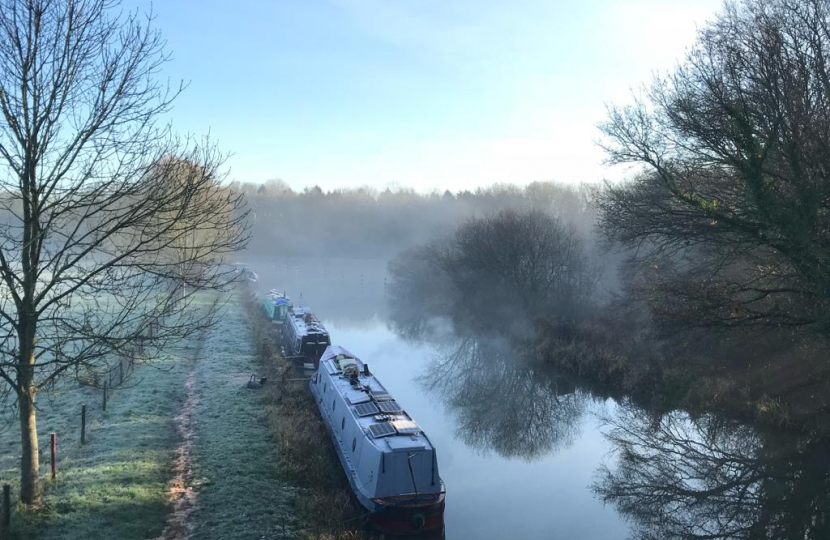
In early Autumn, I promised I would follow up with the Department of Energy to find out why certain groups of boaters - namely, 'Liveaboard boaters with non-residential moorings' - were still being excluded from the Energy Bill Support Scheme Alternative Funding (EBBS AF).
I wrote again to Amanda Solloway MP, the Minister for Energy Consumers and Affordability, asking whether any consideration was being given to compensate those who missed out on last year’s scheme and to gain a better understanding as to why the Government had failed to get the support that was promised to “all households”. I also asked what the intentions were for future government schemes to avoid discrimination against boaters and whether any thought had been given to granting greater discretion to local authorities to determine eligibility.
Latterly, I was in touch with Michael Fabricant MP, in his capacity as Chair of the All Party Parliamentary Group for Waterways, to see whether we might cooperate in resolving the ongoing plight of narrowboaters. I am happy to say that, while the APPG could not engage in amending legislation, Michael was quick to respond and contact the Minister endorsing his support for my campaign.
To this end, the Minister has come back with the assurance that she and her officials have been working consistently to provide energy bills support to as many households as possible. That said, itinerant liveaboard boaters remain unable to receive support through the EBBS AF scheme, as they have failed to fulfil one of the key eligibility criteria, to prove that their dwelling is their main or sole residence.
I had suggested that the most robust way for liveaboard boaters to prove that their boat was their main or sole residence was to use the Canal & River Trust’s database of registered continuous cruisers. The Government replied that the Trust has no method of distinguishing between those individuals who hold a home mooring and live aboard their boat and those who use their boat for recreational purposes – the latter of whom are very likely to already have received funds either through the Energy Bills Support Scheme (EBBS) or the EBBS AF.
In answer to my suggestion that greater discretion could be provided to local authorities to determine eligibility, the Minister argued individual councils did not have enough information to determine eligibility and, as such, this would not adequately protect public funds. She concluded that any constituent who was unable to receive energy bills support visit the “Help for Households” webpage here.
I am glad that the Government recognises that these boaters do deserve support. But it is disappointing not to have any clear resolution. I would also argue that since Wiltshire Council currently supports vulnerable boaters with funding and pays others Housing Benefit or Universal Credit to cover license and mooring fees, their knowledge of eligibility might be more watertight than the Government thinks. I will continue to pursue this.





